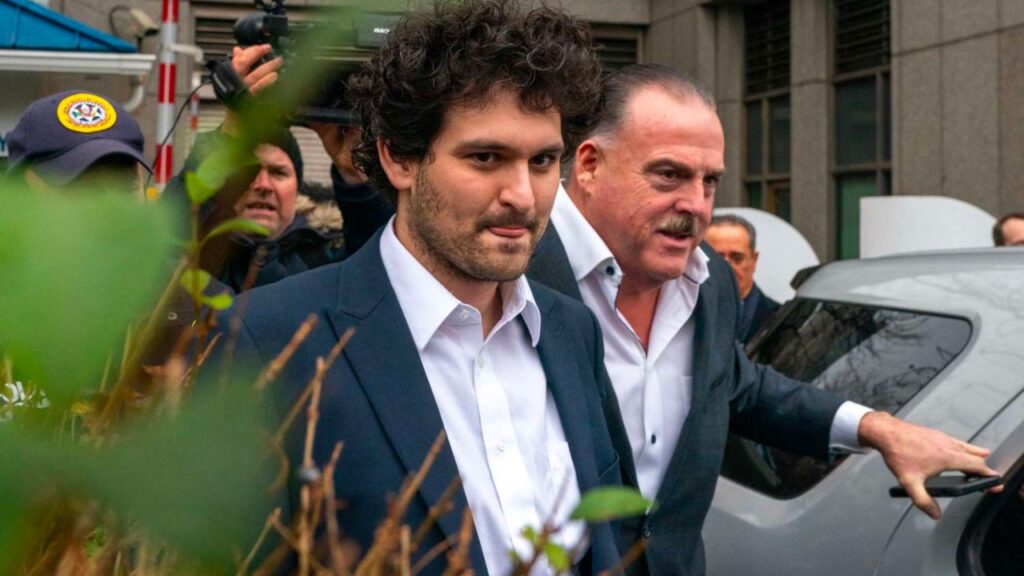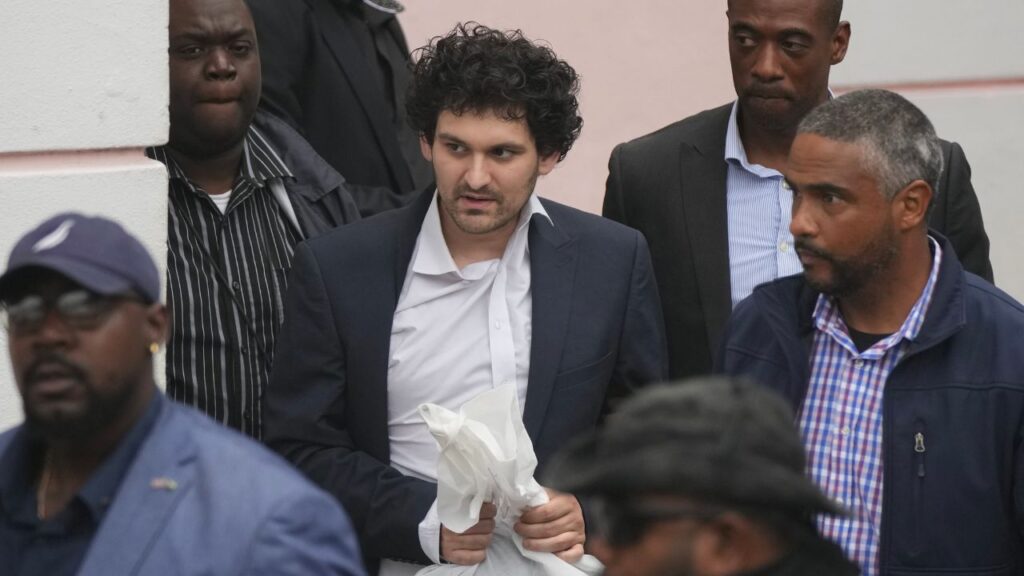Until the summer of 2022, Sam Bankman-Fried was widely recognized as a prodigious figure in the world of cryptocurrency. At the age of 30, he founded one of the largest cryptocurrency exchanges globally, earning him the reputation of a prodigious and innovative entrepreneur.

Behind Bars or Redemption? The Fate of Sam Bankman-Fried
Quick facts:
- Sam Bankman-Fried, a former prominent figure in the crypto industry, is now facing an eight-count federal indictment.
- If convicted and given the maximum sentence, he could potentially spend up to 115 years in prison.
- The charges have had a devastating impact on his reputation and have caused the downfall of his once-thriving cryptocurrency empire.
Not only was he celebrated for his entrepreneurial success, but he was also recognized as a philanthropist with an estimated net worth of $16 billion. Furthermore, Bankman-Fried gained prominence as a significant donor to the Democratic Party and enjoyed favorable relationships in Washington.
However, by early November, his narrative had taken a dramatic turn. Bankman-Fried found himself at the center of a highly publicized and catastrophic downfall, resulting in the disintegration of his empire and the shattering of his carefully crafted image as a remarkably astute and altruistic billionaire. The events that unfolded left both his business and personal reputations in ruins.
What did Sam Bankman Fried do?
Bankman-Fried was apprehended in the Bahamas following a request from U.S. prosecutors in December last year. The Bahamas attorney general’s office at the time extradited Sam Bankman-Fried to the United States.
Caroline Ellison and Gary Wang, former high-ranking executives in Bankman-Fried’s companies, have admitted guilt to multiple fraud charges and are now assisting federal prosecutors in the ongoing investigation. Furthermore, the Securities and Exchange Commission (SEC) has independently filed charges against Bankman-Fried, Ellison, and Wang for defrauding investors in FTX.
The SEC has accused Bankman-Fried of engaging in improper practices by diverting assets deposited by customers with FTX for purposes other than intended. Alameda allegedly used these diverted funds to finance its trading positions, venture investments, and even personal expenditures like extravagant real estate purchases and sizeable political donations.
As the crypto market faced a decline in value throughout 2022, lenders started demanding repayment from Alameda. Despite FTX supposedly providing Alameda with billions of dollars in customer funds, Bankman-Fried is alleged to have continued injecting additional funds into Alameda to cover these positions, according to the SEC’s allegations.
Alameda Research operated as an arbitrage firm, engaging in the practice of buying Bitcoin (BTC) at a lower price on one exchange and selling it at a higher price on another. Specifically, exploiting price discrepancies between South Korea and other parts of the world, Bankman-Fried and Gary Wang capitalized on what became known as “the kimchi swap,” enabling them to generate significant profits.
Sam Bankman Fried’s trial

Sam Bankman-Fried will be undergoing two separate trials related to the alleged mishandling of funds at the defunct cryptocurrency exchange.
Initially, he was slated to face a trial encompassing 13 charges, such as fraud, fraud conspiracy, and bribery, starting on October 2, 2023. However, a U.S. district judge decided on June 15 to separate five of those charges into a second trial, scheduled to begin on March 11, 2024.
In February and March 2023, the Department of Justice introduced five additional charges against Bankman-Fried, including bribery conspiracy, conspiracy to operate an unlicensed money-transmitting business, bank fraud conspiracy, and derivatives and securities fraud.
His legal team, however, sought to have these charges dismissed, contending that he should not be prosecuted for offenses that were filed against him after his arrest and extradition from the Bahamas in December 2022.
The Department of Justice requested a waiver from the Bahamian authorities, who currently possess the jurisdiction to pursue legal action on those specific charges.
Where is Sam Bankman Fried now?
Bankman-Fried, known in the crypto community as “SBF,” has entered a plea of not guilty to all charges while awaiting trial at his parent’s residence in Palo Alto, California. His $250 million personal recognizance bond imposes strict restrictions on his online communications and financial transactions.
Joseph Bankman and Barbara Fried, the parents of Sam Bankman-Fried, provided their Palo Alto, California, home as collateral to secure his bail. Bankman-Fried or his family do not necessarily have $250 million. In this situation, the $250 million bond is backed by his parent’s home. By signing the bond agreement, Bankman-Fried’s parents assume the responsibility of the $250 million should their son choose to flee.
During the court proceedings, Prosecutor Nicolas Roos informed U.S. Magistrate Judge Gabriel Gorenstein that Bankman-Fried would be subject to specific conditions as part of his bail package. These conditions include surrendering his passport, being confined to his parent’s residence in Palo Alto, and undergoing regular mental health treatment and evaluations.
Is Sam Bankman Fried going to jail?
If found guilty, Sam Bankman Fried’s sentence could potentially be lengthy. U.S. Attorney Damian Williams has described the case as “one of the biggest frauds in American history.” As reported by Times Magazine, Sam Bankman-Fried is confronted with an eight-count federal indictment, which, in the event of a conviction and the maximum sentence being imposed, could lead to a potential prison term of up to 115 years.

The fact that the 30-year-old, who was once the face of the crypto industry, faces the potential of a lifelong prison sentence highlights the gravity of the charges brought against him by the U.S. Attorney’s Office for the Southern District of New York.
Bankman-Fried’s legal team has requested the dismissal of the indictment, asserting that the charges are flawed and lack clarity. They argue that the charges are duplicative, vague, and non-specific, typically falling under regulatory enforcement actions rather than criminal prosecution.
With the extent of Bankman-Fried’s influence, his downfall has triggered turmoil across various domains. Many individual traders, who were FTX’s customers, are concerned about losing their life savings.
The collapse of FTX has also had a destabilizing effect on the broader cryptocurrency market, leading to a significant decline in the price of Bitcoin, the world’s most valuable digital currency.
The FTX Future Fund is uncertain about fulfilling its commitments to grantees, and Bankman-Fried’s financial ruin could have ripple effects on philanthropy, impacting organizations like the effective altruism nonprofit Open Philanthropy. Bankman-Fried had allocated 99% of his wealth to public causes, but now, all of that has been lost.